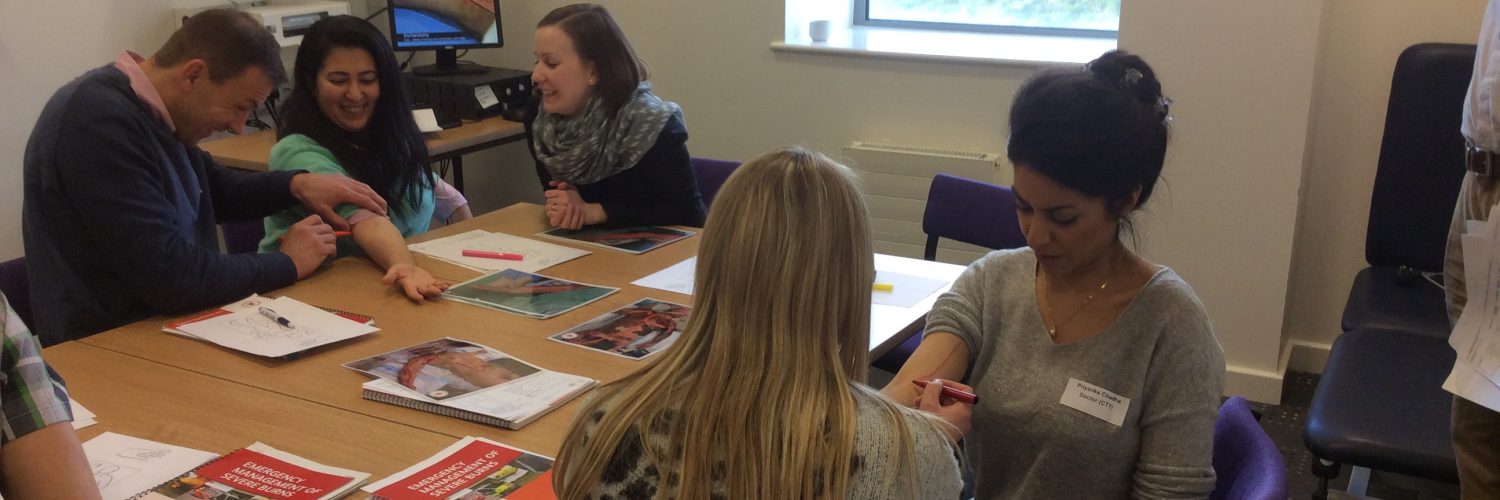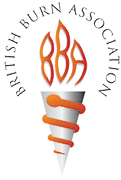September Cohort Dates: 18 Sept, 2 Oct, 16 Oct, 30 oct, 13 Nov and 27 Nov
This module enables learners to further develop their advanced burn care skills and enhance their theoretical knowledge to underpin practice (CC3N, January, 2019). The credits obtained at Level 7, can be used toward the MSc Advanced Professional Practice Programme. The module will be hosted and delivered completely online by Chelsea and Westminster Hospital NHS Trust with UEA quality and assessment oversight.
The module is designed to cover the patient journey commencing with the underlying pathophysiology of burn injury, followed by themed study days relating to – pre- hospital burn care and initial assessment, early burn care and surgical management, reducing the burden of injury, holistic and global perspective of burn care and complex burn injuries and skin loss. The Module consists of 6 taught days using a variety of different teaching methods, including lectures, workshops and demonstrations, exploration of case scenarios, presentations, specialist unit visits and work-based learning. Other topics covered within this module include aspects of professionalism and leadership, potential field visits to Queen Victoria Hospital, St Andrews, Chelsea and Westminster, Stoke Mandeville.
The Module content is aligned to the British Burn Association Burns Care Standards (BBA, 2018) and will embed clinical knowledge to achieve CC3N Advanced Burns Competencies (CC3N, 2019) on completion of the module.
To apply: https://myuea.force.com/apply
Application Deadline: 31 July 2024
Providing the foundation of key adult and paediatric burn injury knowledge and burn management principles from which to facilitate best practice in burn care for people working in burns services both nationally and internationally.
Open to all members of the burn care team and other health care professionals with regular burn patient contact.
The unit will comprise sessions on seven full Fridays as follows: 27 September, 4 October, 25 October, 8 November, 15 November, 29 November, 13 December.
Academic study affords 20 credits for level 6 and 15 credits for level 7.
Information is available on the Manchester Burns Course: Burns Rehabilitation here
This three-day specialist course is suitable for nurses, physiotherapy, and healthcare support workers and anyone working in a burn care setting
Includes presentations by experts in all areas of burns care from assessment to rehabilitation. European Burns Association accredited.
Topics to include:
- Fluid Management and Wound assessment
- Infection prevention & Sepsis
- Pain management and Nutrition
- Dressings and Surgical management
- Mental health and psychological therapies
- Patient experience – Guest speaker from Katie Piper foundation
- Scar management, lasers and many more!
Cost £300 – Course carries 22.5 CME points
For full schedule and further information, please contact mse.burnstraining@nhs.net
January Cohort Dates: 8 Jan, 22 Jan, 5 Feb, 19 Feb, 5 Mar and 19 Mar
This module enables learners to further develop their advanced burn care skills and enhance their theoretical knowledge to underpin practice (CC3N, January, 2019). The credits obtained at Level 7, can be used toward the MSc Advanced Professional Practice Programme. The module will be hosted and delivered completely online by Chelsea and Westminster Hospital NHS Trust with UEA quality and assessment oversight.
The module is designed to cover the patient journey commencing with the underlying pathophysiology of burn injury, followed by themed study days relating to – pre- hospital burn care and initial assessment, early burn care and surgical management, reducing the burden of injury, holistic and global perspective of burn care and complex burn injuries and skin loss. The Module consists of 6 taught days using a variety of different teaching methods, including lectures, workshops and demonstrations, exploration of case scenarios, presentations, specialist unit visits and work-based learning. Other topics covered within this module include aspects of professionalism and leadership, potential field visits to Queen Victoria Hospital, St Andrews, Chelsea and Westminster, Stoke Mandeville.
The Module content is aligned to the British Burn Association Burns Care Standards (BBA, 2018) and will embed clinical knowledge to achieve CC3N Advanced Burns Competencies (CC3N, 2019) on completion of the module.
To apply: https://myuea.force.com/apply
Application Deadline: 30 November 2024

